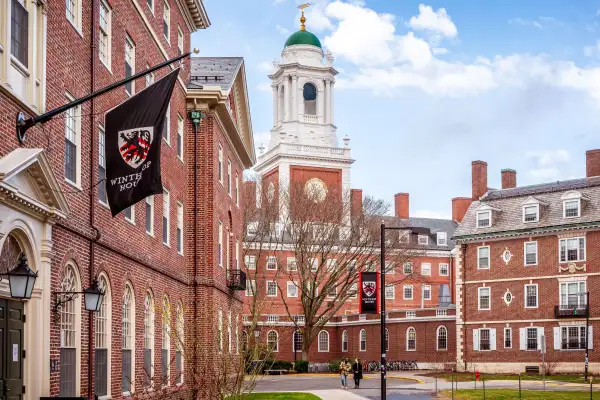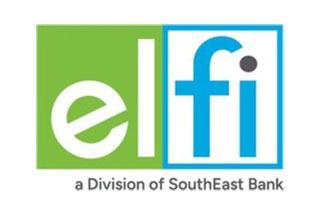Harvard Is the Latest Elite College to Offer Free Degrees to More Middle-Income Students

Harvard University is joining a cadre of the nation’s best colleges that are making higher education free for more families with limited means — including those with upper-middle-class incomes.
The university said Monday that it is expanding its financial aid program to cover the full cost of undergraduate degrees, including housing, health care and other expenses, for families who make $100,000 or less. For families earning up to $200,000, Harvard is waiving tuition.
“Putting Harvard within financial reach for more individuals widens the array of backgrounds, experiences, and perspectives that all of our students encounter," Harvard President Alan Garber said in the announcement. The university previously offered a free ride to students from families earning up to $85,000.
The college says that the expansion extends financial aid to approximately 86% of all U.S. families, making it one of the most generous in the country — though the students will have to actually get into Harvard, which has an acceptance rate below 4%. About a quarter of the student body comes from families earning under $100,000, according to the university. The changes go into effect for the 2025-2026 academic year, which starts in September.
Harvard is the latest major college to either expand or launch tuition-free programs for low- and middle-income students. At the end of 2024, the Massachusetts Institute of Technology (MIT), the University of Texas, Carnegie Mellon University, the University of Pennsylvania, the University of Massachusetts and the University of Michigan all unveiled similar initiatives that are slated for the upcoming academic year.
Over the past two decades, the annual cost of college has ballooned over 113%, according to data from the Department of Education. While students rarely — if ever — pay the actual sticker price of college, they’re still graduating with average debt loads around $30,000.
As the financial burden of obtaining a degree grows heavier, more students are beginning to question whether college is even worth it.
Free tuition programs like the ones Harvard, MIT and others offer are among the strategies universities are using to reverse those existential trends in higher education. But they also serve another purpose: In the wake of race-based affirmative action being struck down by the U.S. Supreme Court in June 2023, they act as a race-neutral method to boost socioeconomic diversity on campus, as Garber alluded to in the announcement.
More colleges go tuition-free for families with financial need
Here’s a look at how these new or expanded tuition-free programs work.
Harvard University
As mentioned above, undergraduate degrees at Harvard will be tuition-free for families earning up to $200,000. The school will cover all college-related expenses for undergrads from families earning $100,000 or less. For students at this income level, Harvard is also giving $2,000 "start-up grants" during students' first year to help them cover any other miscellaneous expenses. If they make it to their junior year, they get an additional $2,000 grant.
The changes go into effect for the fall semester starting in September. The new policy is a major expansion from Harvard's current one, which since 2023 has been offering financial aid to families earning up to $150,000.
Brandeis University
Located in the suburbs of Boston, Brandeis University is another Massachusetts college launching a financial aid program aimed at offering a tuition-free education.
For the fall 2025 term, the small research institute will begin covering the full cost of tuition — through grants and scholarships — for incoming undergraduates from families earning less than
Carnegie Mellon University
Pittsburgh-based Carnegie Mellon University is implementing a brand new tuition-free financial aid program for students and families earning less than $75,000.
Set to begin the 2025-26 academic year, the CMU Pathway program includes additional aid to families who earn up to $100,000. The university says that families below that threshold will not need to take out student loans to cover the cost of attendance.
$75,000 and 50% of tuition for families earning up to $200,000.
Massachusetts Institute of Technology
Starting in the fall, undergraduates with family income below $200,000 can attend MIT tuition-free, up from the current threshold of $140,000. MIT says that 80% of U.S. households meet this new income limit.
And for families that earn under $100,000, MIT says they will “pay nothing at all” for the entire cost of attendance, including tuition, books, personal expenses and room and board. The university currently provides this benefit for families earning $75,000 or less. Already, MIT says 35% of undergrads don't pay for tuition.
University of Massachusetts System
UMass says it already covers the cost of tuition for 92% of students from “high-need” Massachusetts families, defined as having an adjusted gross income of $75,000 or less.
It’s looking to close the gap for the remaining 8%. In addition to meeting the income threshold of $75,000, students eligible for the tuition-free program must be Massachusetts residents who are enrolled full-time in an on-campus undergraduate degree program.
The changes, which roll out this fall, apply to the entire UMass system, including the Amherst, Boston, Dartmouth and Lowell campuses.
University of Michigan
The University of Michigan announced in December that it'd be expanding its "Go Blue" program to offer a tuition-free education to more in-state students.
Starting this fall, the free-tuition guarantee will be offered to incoming and returning students from families earning $125,000 or less. The expansion means another 2,200 current students will be covered under the Go Blue program across the Ann Arbor, Dearborn and Flint campuses, the university said.
University of Pennsylvania
With its Quaker Commitment program announced last fall, Penn will raise the annual income threshold to qualify for free tuition from $140,000 to $200,000. The university also plans to stop considering a family’s primary home equity as an asset factored into financial aid calculations. Students from families with incomes of $75,000 or less and typical assets can receive free tuition, fees, housing and meals under a previous program.
“Penn is reaffirming its commitment to the core principle that a world-class education can be affordable to students from all backgrounds, not just those from lower-income backgrounds or those who are able to pay full price,” Mark Dingfield, vice president for finance and treasurer, said in a statement last year announcing the change.
University of Texas System
At all of its nine academic institutions, the University of Texas is waiving tuition and mandatory fees for families who have an adjusted gross income of $100,000 or less beginning in the fall 2025 semester.
For the past several years, UT has run a patchwork of similar financial aid programs with varying income thresholds across its massive university system. University officials said in November that $100,000 will become the new baseline for all campuses.
More from Money:
See Which 20 Colleges Give You the Biggest Bang for Your Buck
What Will Happen to Financial Aid if Trump Closes the Education Department?






